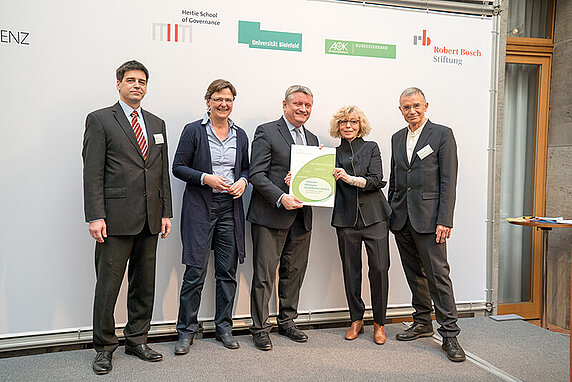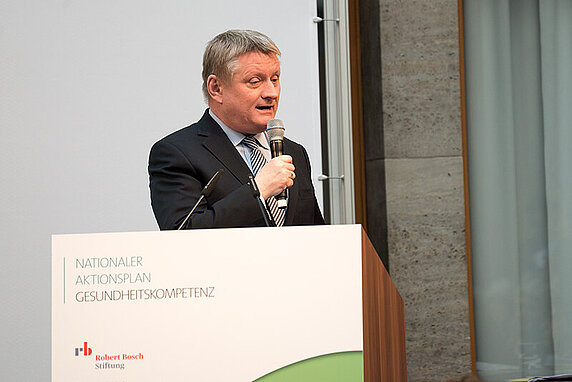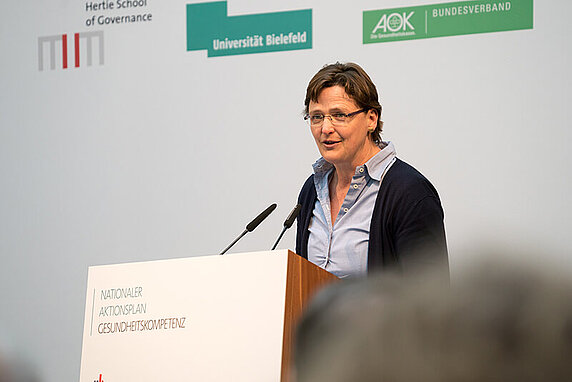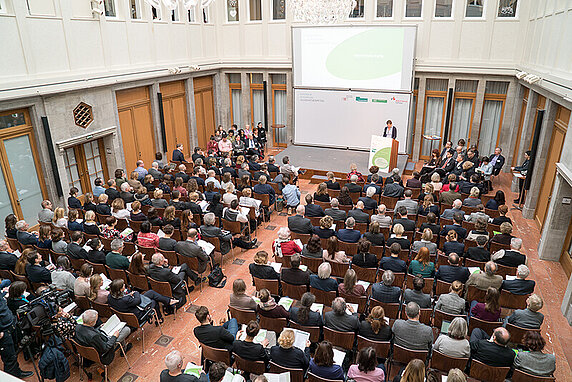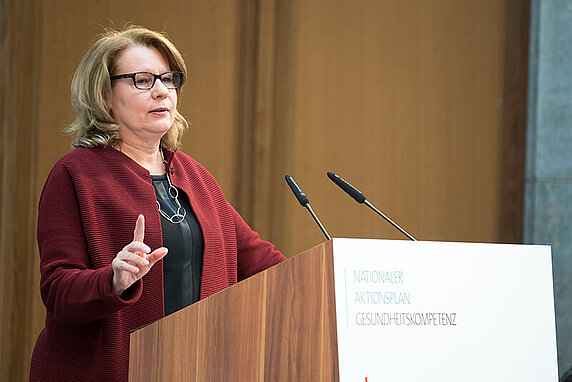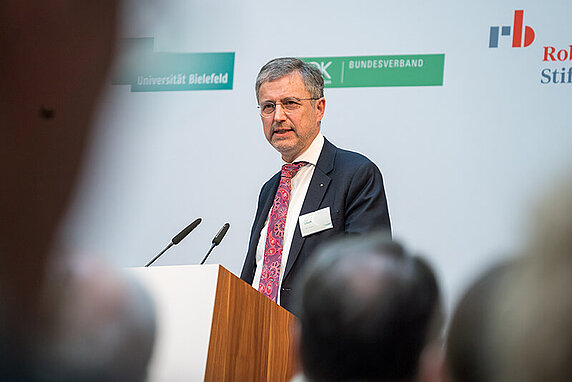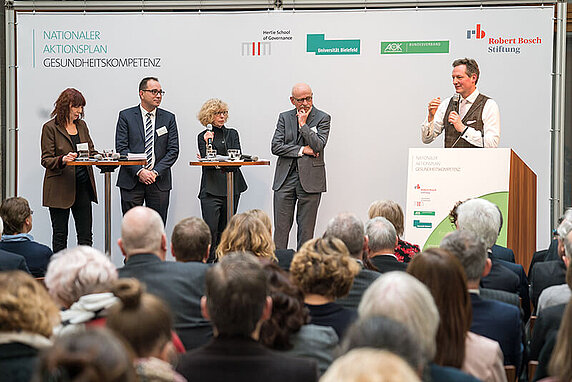Federal Health Minister Gröhe: “With this roadmap, we can achieve a great deal."
Berlin, 19 February 2018 – Every second person in Germany has only limited health literacy. It is hard for them to understand and evaluate health-related information. A team of experts from academia and the healthcare field, led by Doris Schaeffer and Ullrich Bauer from the University of Bielefeld, Klaus Hurrelmann from the Hertie School and Kai Kolpatzik from the AOK national association (AOK-Bundesverband), want to combat this deficit with a "National Action Plan for Health Literacy". The plan offers 15 concrete recommendations involving all the relevant actors, and aims to make the healthcare system more user-friendly and promote citizens’ health literacy. The "National Action Plan for Health Literacy" is an initiative of the academics and is sponsored by the Federal Minister of Health. The Robert Bosch Foundation and the AOK-Bundesverband funded the work.
Jump to available downloads
Federal Health Minister Hermann Gröhe said upon publication of the plan in Berlin (19 February): "With the National Action Plan, there is now a scientific roadmap that shows how we can strengthen health literacy in our country through education, nutrition and at work, but also through more understandable exchange between doctor and patient. This is also the goal of the "Alliance for Health Literacy", which we founded last year. With the "National Action Plan for Health Literacy" and the alliance, we can achieve a great deal, together with doctors, nurses, hospitals, health insurers, pharmacies, self-help and consumer organisations, as well as federal and state authorities."
The demands on individual health literacy are growing along with life expectancy rates, chronic diseases, the complexity of the healthcare system and the digital flood of information, according to the authors of the Action Plan. "The greatest need for action lies with people who have lower levels of education, the elderly, the chronically ill and people with a migrant background," says health expert Doris Schaeffer. For the state, a well-implemented funding concept also offers significant savings potential. Experts estimate the additional cost of insufficient health literacy in Germany amounts to as much as 15 billion euros per year.
Promoting health literacy must begin at a young age, the experts say. "There should be informational programmes in kindergarten and at school, but also at work, in the home and in communities," says sociologist Klaus Hurrelmann. Australia, the United Kingdom and the United States have, for example, been implementing such societal strategies for many years. Following their example, German media and consumer goods makers should also take responsibility. One example would be clear labeling requirements for consumer products, such as use of the ‘food traffic light’.
While there is now more health-related information than ever before, this can also be confusing to many consumers. Only about one in three people can distinguish legitimate from dubious health information on the Internet, according to a YouGov survey accompanying the action plan, which was commissioned by the AOK national association. There are already three quality labels for medical websites, but 84 percent of respondents are not aware of these, according to the survey. "What we need is evidence-based, transparent and understandable health information, but also actors in the healthcare field who can convey that," said the AOK prevention expert Kai Kolpatzik.
According to the action plan, health literacy should be standard at all levels of the health system. Concrete recommendations include more transparency and the elimination of complex administrative processes in the healthcare system, as well as the targeted support of physicians and nurses in communicating with patients in an easily understandable manner. The entire system must undergo a paradigm shift and focus on the patient in prevention, treatment and care, the experts say. Other areas of action include chronically ill people who need lifelong expertise to deal with their illness, as well as the systematic expansion of research into health literacy, which is needed to make progress in this area.
An expert symposium at the Robert Bosch Foundation in Berlin is also taking place on 19 February, attended by representatives from politics, the healthcare field and academia. The event is being moderated by Eckart von Hirschhausen und Ilona Kickbusch.
Related material available for download
-
National Action Plan on Health Literacy (in German)
-
Summary of the National Action Plan (in German)
-
Health Literacy in Deutschland: 2016 report by Universität Bielefeld (in German)
-
Interview with lead researchers Hurrelmann and Schaeffer (in German)
-
Statement AOK-Bundesverband (in German)
-
Statement Robert Bosch Foundation (in German)
-
Infographic 1_YouGov Survey
-
Infographic 2_YouGov Survey
-
Press release for download (in German)
-
PRESS PHOTO

